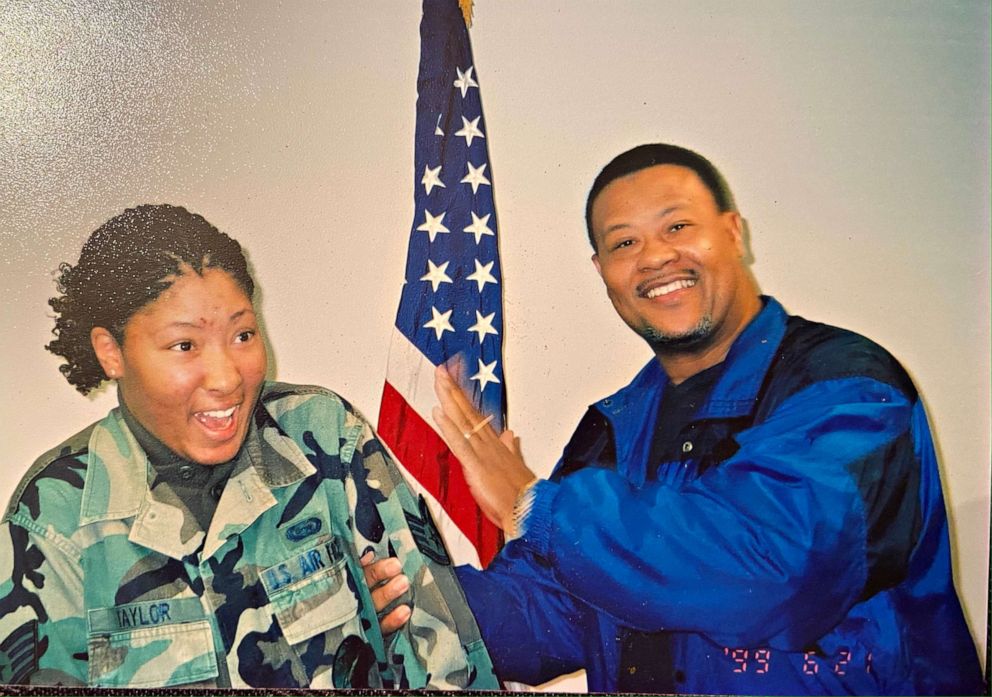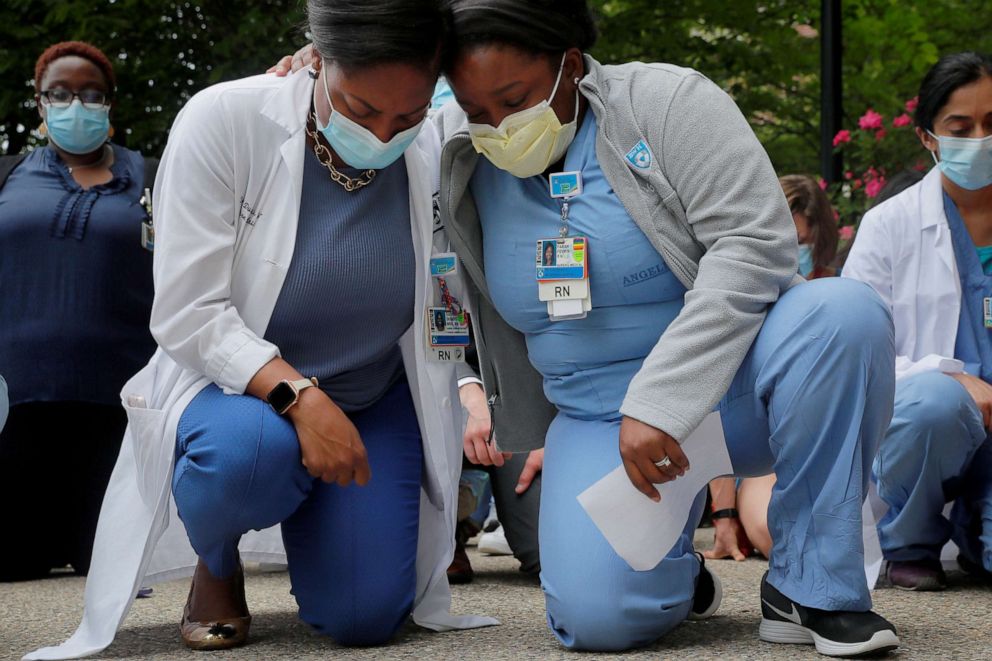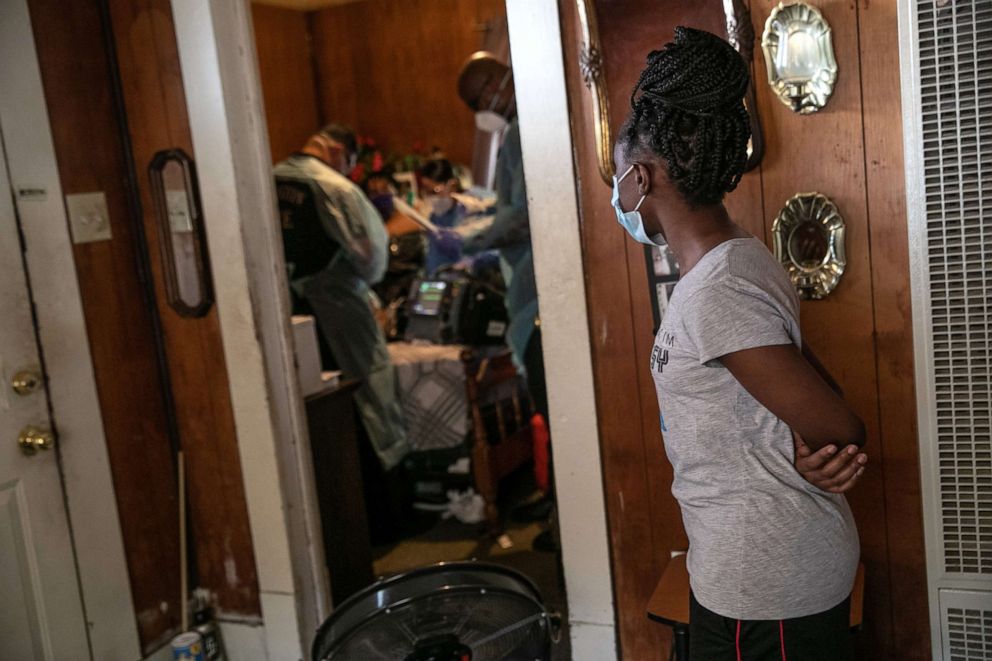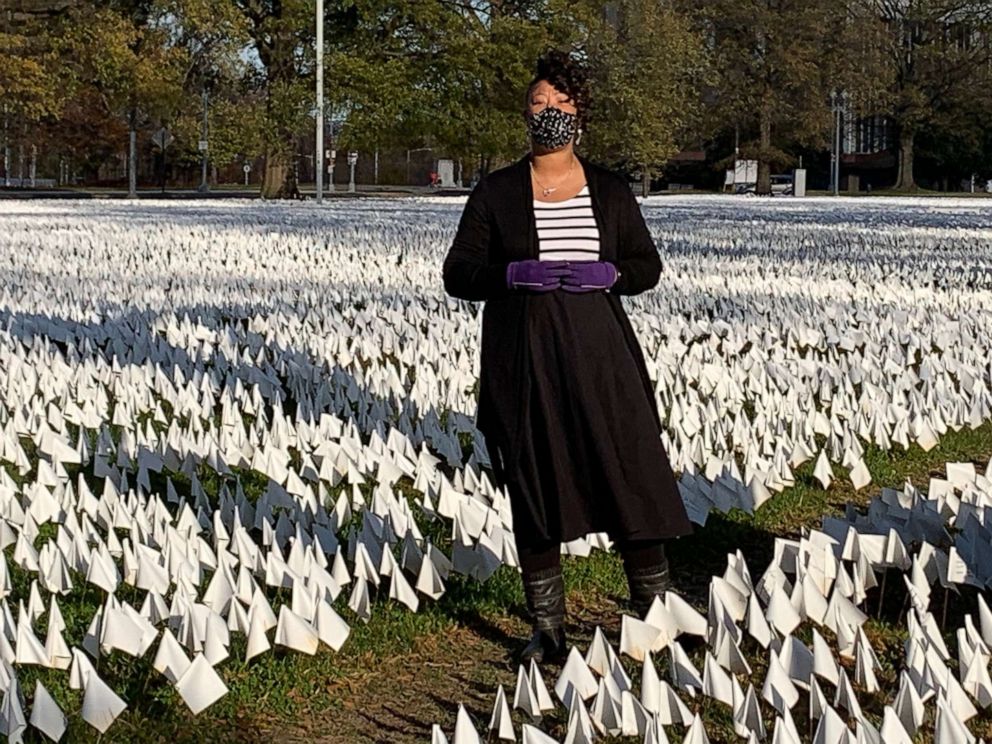A hidden pandemic: Grief in the African American community
Black Americans are 2.3 times more likely to die from COVID-19.
Charonda Johnson, a 39-year-old African American former combat veteran, found it difficult to grieve after her father passed away unexpectedly from COVID-19 at the age of 62.
“I never really thought of my dad dying,” Johnson said. “I could not process that thought. It literally sent me into hyperventilation."
Due to COVID-19 restrictions, she wasn’t even allowed at his bedside.
“He died alone," Johnson said. “An inhumane way to die.”

Black Americans are 2.3 times more likely to die from COVID-19 compared to white Americans, when age is taken into account, an APM Research Lab analysis found. Long-standing health, economic and social inequalities have led to the disproportionate death rate, according to the Centers for Disease Control and Prevention. Black Americans also disproportionately have jobs that have increased COVID-19 exposure.
With so many families losing loved ones, health experts warn of a potential crisis in the African American community: prolonged grief disorder.
Prolonged grief disorder is a medical condition in which grief symptoms last longer than 12 months. Without treatment, the condition can persist indefinitely, and new symptoms can emerge.
“It's a precursor for depression, substance use disorders, physical illnesses, especially cardiac diseases and immune system-related diseases, and cancer,” said Dr. M. Katherine Shear, psychiatry professor and director of the Center for Complicated Grief at the Columbia School of Social Work.

According to a study published in the Journal of Death and Dying, African Americans are more likely to experience prolonged grief. However, they are less likely to seek treatment due to cultural stigma and systemic barriers to care, experts say.
“There are unique stressors that are affecting mental health that Black Americans have had to deal with during the pandemic that other groups have not to the same degree,” said Dr. Uche Blackstock, emergency medicine physician and Yahoo News contributor.
And with restrictions on funerals and gatherings, grieving has been anything but normal.
With "people who are not able to access the mental health services they need in order to be able to grieve properly,” Blackstock said, “we will probably see higher rates of anxiety and depression in Black communities."
“What we're seeing in this pandemic is just an amplification of what always has been there in Black communities in terms of pre-existing inequities,” Blackstock said.
Experts say structural racism is a major stressor, which can also negatively impact a person's health.
“Discrimination covers multiple sectors from health care, education, housing, the criminal justice system and toxic stress -- that allostatic burden decreases one's immune system," said Dr. Stephanie Mayfield Gibson, director of the U.S. COVID-19 Response Initiative for Resolve to Save Lives.
“As someone who has lost relatives to COVID, and as an African American, I can say that it is devastating for the community to see this disproportionate impact,” Mayfield Gibson said.

At Columbia’s Center for Complicated Grief, Shear implemented a program for families who lost loved ones to COVID-19.
The program, Shear said, “focuses on helping people adapt to a loss, which requires accepting the reality of the loss, all the changes that it brings into one's life, and accepting grief into your life because it doesn’t go away fully.”
Some experts also say addressing prolonged grief disorder involves addressing discrimination and racism head-on. Blackstock said she believes governments and policymakers also play a key role.
“We really have to think about policies that will focus on putting resources back into Black communities, because essentially our communities have been underfunded and exploited for decades as a result of federal policy,” Blackstock said.
Dr. Nadine Burke Harris, California's surgeon general, said one of her key agenda items is to train health care providers to be aware of how structural racism affects health.
“We've trained over 15,000 health care providers on how to screen for adverse childhood experiences, how to recognize biological health conditions from our toxic stress response, and then how to respond with evidence-based trauma informed care,” Harris said.

And in the meantime, experts urge self-care.
“Self-care isn't selfish,” Harris said. “It's absolutely critical for us to be practicing self-care right now. That includes getting regular exercise, nourishing our bodies with good nutrition, having good sleep hygiene, connecting with trusted relationships, mindfulness and meditation and connecting to nature.”
Johnson continues to remember her father and grieve one day at a time. She was able to have a small, socially distanced memorial service with her family at the Dover Air Force Base.
Mishal Reja, M.D. is an incoming gastroenterology fellow at SUNY Downstate.




